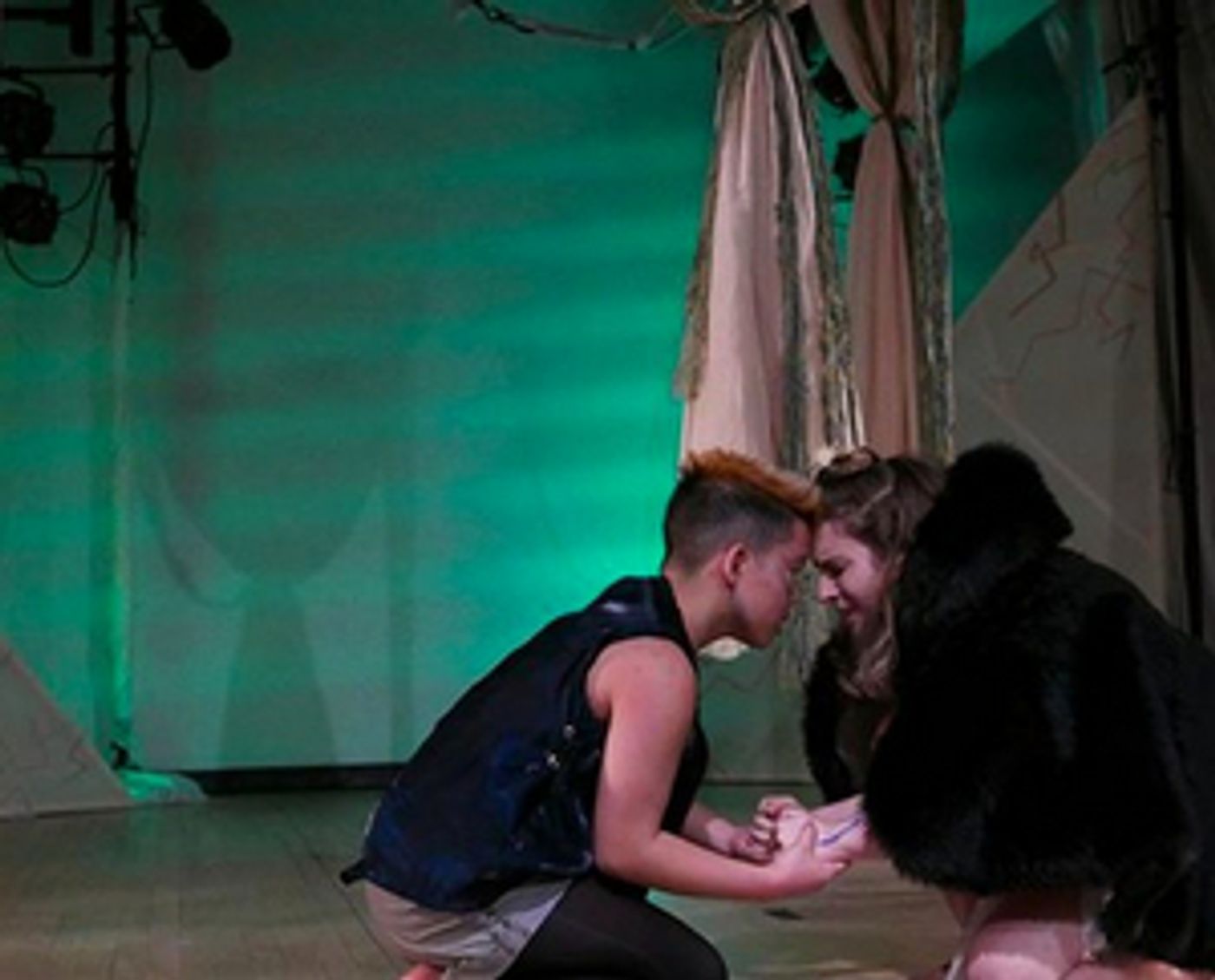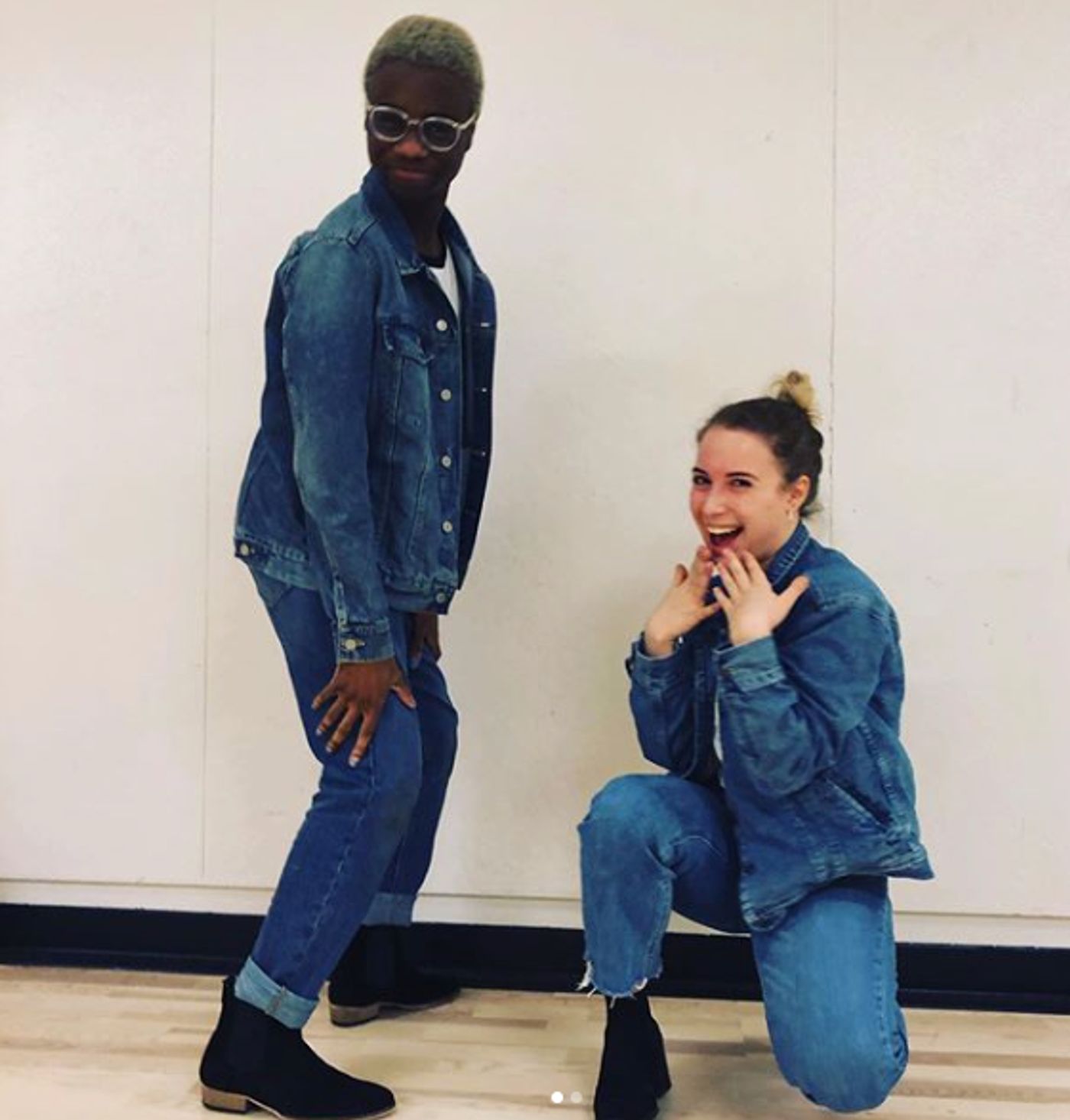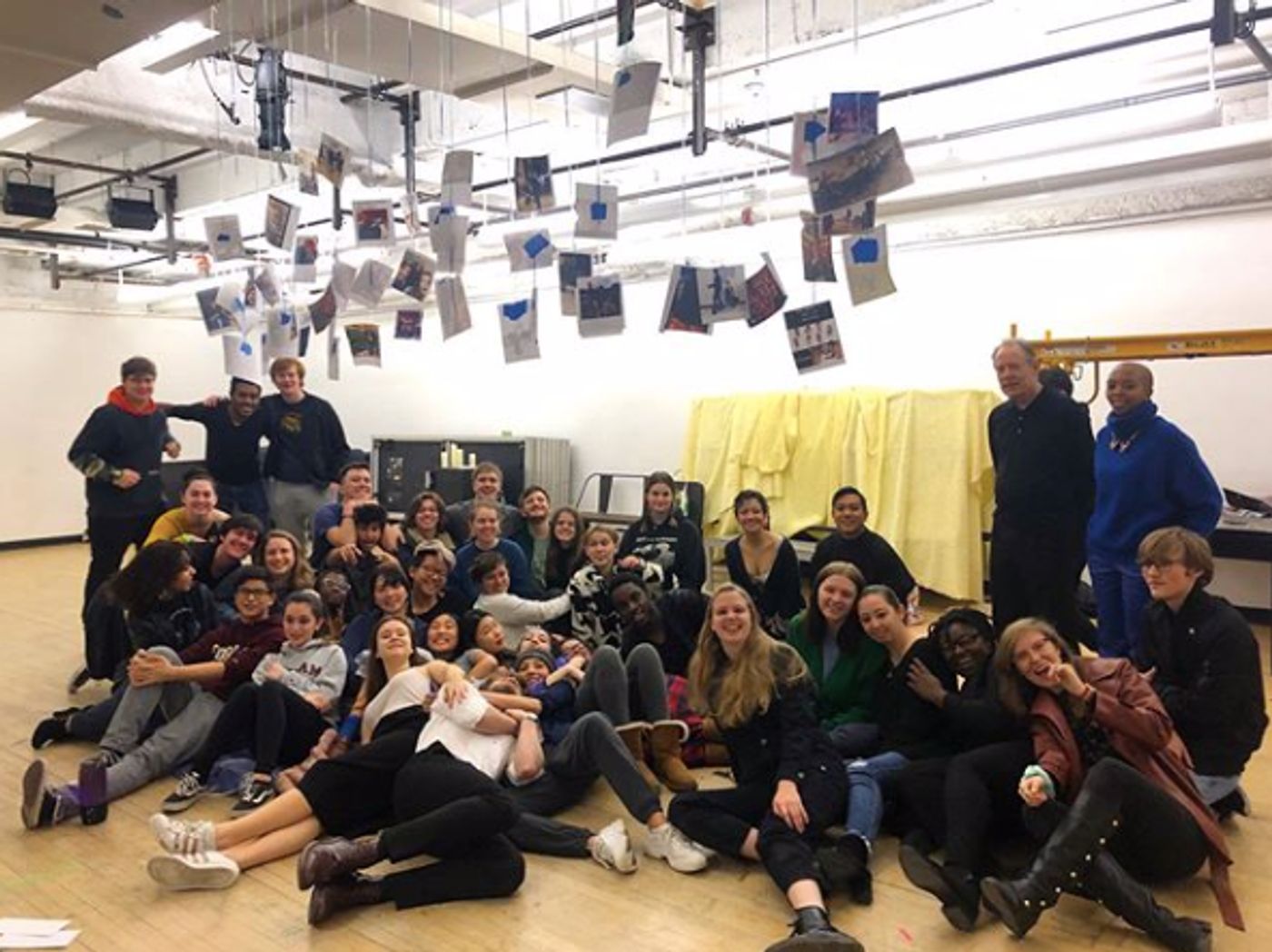BWW Blog: Why We're Lucky
We are lucky in that our entire field of study revolves around empathy, collaboration, love, support, and creativity.

For the past six months, it's been tempting to look around at the world and want to scream in frustration. Every theatre artist I know-no matter what age, identity, level of experience, or level of education-feels some degree of artistic and economic suffocation due to the pandemic. While some industries are granted permission to open up and function again, ours remains unsafe. No live theatre artist can continue to do what they've done before. Our summers have been spent largely in mourning. I know, personally, I've had the thought over and over again: why me? Why did I have to choose this thing to love? Why did I commit myself to theatre (and a theatrical education) when now the entire industry's stopped in its tracks? In my darker moments this summer, I've considered an alternate career path or choosing a different major to study in college. It just feels like the wrong time to be studying theatre. I look at my classmates who graduated with their theatre degrees in 2018, 2019, and even spring 2020, and my head pounds with envy. I've felt downright unlucky to have chosen this particular career at this particular time in the world.
But then I started the semester. It was a semester I dreaded, because I thought the idea of coming back to a fully-online theatre curriculum would depress the life out of me. I feared the lack of education in virtual theatre amongst both the students and the faculty in my program, and truly I feared wasting my time with my education. If I'm not learning how to create live theatre, then what am I doing as a theatre directing major this semester? Turns out: a lot.
 My school's theatre program cancelled its first week of classes, and instead, invited every theatre major in the program to attend three nights of virtual teach-ins. The first night of programming was community based, light-hearted, and low-pressure. Student directors spoke about their plans for virtual productions, and we were sorted into mini-conferences with smaller groups to play virtual Just Dance and virtual Scattergories with all of our professors. The second night of programming was more focused on the concept of virtual theatre and what it could be, and we viewed a piece of virtual theatre together and then talked with the piece's creators. The third night was entirely dedicated to mental health, which included an enlightening discussion about the initiative to combat racial injustice through theatre and a forum for students to voice their concerns about injustice within the theatre program. We ended the night by all holding photos up to our cameras, showing a picture of the person we plan to dedicate our work to for the following academic year. We each lit a candle in our Zoom boxes, and gave each other a group-scream and group-hug through the video conference. It was oddly cathartic. It was the closest thing I've felt to being in a room of people since March. For a moment, I even forgot that we were in a pandemic. Staring at the 150 faces of my classmates on my computer screen, for a moment I believed I was with them. I felt their support. For a moment, I exhaled.
My school's theatre program cancelled its first week of classes, and instead, invited every theatre major in the program to attend three nights of virtual teach-ins. The first night of programming was community based, light-hearted, and low-pressure. Student directors spoke about their plans for virtual productions, and we were sorted into mini-conferences with smaller groups to play virtual Just Dance and virtual Scattergories with all of our professors. The second night of programming was more focused on the concept of virtual theatre and what it could be, and we viewed a piece of virtual theatre together and then talked with the piece's creators. The third night was entirely dedicated to mental health, which included an enlightening discussion about the initiative to combat racial injustice through theatre and a forum for students to voice their concerns about injustice within the theatre program. We ended the night by all holding photos up to our cameras, showing a picture of the person we plan to dedicate our work to for the following academic year. We each lit a candle in our Zoom boxes, and gave each other a group-scream and group-hug through the video conference. It was oddly cathartic. It was the closest thing I've felt to being in a room of people since March. For a moment, I even forgot that we were in a pandemic. Staring at the 150 faces of my classmates on my computer screen, for a moment I believed I was with them. I felt their support. For a moment, I exhaled.
 We are not lucky to be theatre artists at this current moment in time in many ways. Our industry is halted in a way more severe and sustained than most other fields of study. Our employment, which was already difficult to sustain, has become seemingly hopeless. But what we are extremely lucky to have is a community-based network of fellow theatre artists. We are lucky in that our entire field of study revolves around empathy, collaboration, love, support, and creativity. During my first week of "theatre classes," I didn't learn any new technical skills. I didn't learn how to direct better, and I didn't study any new lighting equipment or discover a new acting technique. But what I did receive from my program was a warmth, a love, a light, and a connectedness that I sorely lacked through the entirety of summer. Theatre educators are endowed with the empathy to know it is a necessary component of education to simply offer their students love. When our professors played virtual Scattergories with us, it was about more than just the word game. It was a radical statement of, "I am here for you. There are no hierarchies anymore. We are all feeling the same kind of pain, and we are all artists together. We will persevere together." Theatre education doesn't necessarily always need to be flashcards and tests. Sometimes, the greatest lesson we can take is learning to build emotional strength and unite with our fellow collaborators in a shared experience. Building trust, vulnerability, and openness about what we are feeling is a keystone piece of the theatre major educational experience. My school's program was able to bring us back into this journey in a matter of days.
We are not lucky to be theatre artists at this current moment in time in many ways. Our industry is halted in a way more severe and sustained than most other fields of study. Our employment, which was already difficult to sustain, has become seemingly hopeless. But what we are extremely lucky to have is a community-based network of fellow theatre artists. We are lucky in that our entire field of study revolves around empathy, collaboration, love, support, and creativity. During my first week of "theatre classes," I didn't learn any new technical skills. I didn't learn how to direct better, and I didn't study any new lighting equipment or discover a new acting technique. But what I did receive from my program was a warmth, a love, a light, and a connectedness that I sorely lacked through the entirety of summer. Theatre educators are endowed with the empathy to know it is a necessary component of education to simply offer their students love. When our professors played virtual Scattergories with us, it was about more than just the word game. It was a radical statement of, "I am here for you. There are no hierarchies anymore. We are all feeling the same kind of pain, and we are all artists together. We will persevere together." Theatre education doesn't necessarily always need to be flashcards and tests. Sometimes, the greatest lesson we can take is learning to build emotional strength and unite with our fellow collaborators in a shared experience. Building trust, vulnerability, and openness about what we are feeling is a keystone piece of the theatre major educational experience. My school's program was able to bring us back into this journey in a matter of days.
As artists, we are so lucky, because our education and our craft is synonymous with our own personal wellbeing and personal development. I don't think many other types of students could play Scattergories with their professors, and then genuinely feel as though they've gained a valuable experience for their education! But I really did. Learning to be a theatre artist teaches me, time and time again, how to trust those around me and how to offer love to those who need it most. Even though we can't make live theatre, the act of studying it in any way we can will soothe our souls during the trying months to come. I am very grateful for that. I am grateful to love theatre, and I am grateful for my program-even during an industry-halting pandemic.

Videos


